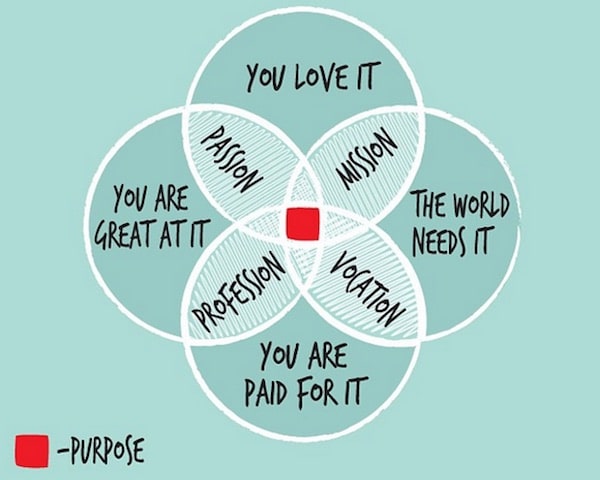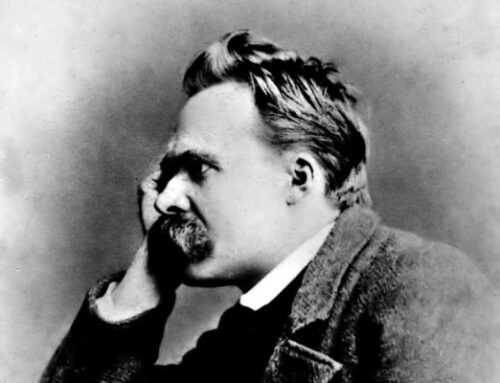What’s the point?
It’s a seemingly simple question that can have several different meanings. It can be an expression of hopelessness, a seeking of clarification, the start of an argument or a search for purpose.
 The Japanese have another word for purpose – ‘ikigai’, a concept meaning ‘a reason for being’ and according to the Japanese, everyone has an ikigai. Finding it requires a deep and often lengthy search of self. Such a search is regarded as being very important, since it is believed that discovery of one’s ikigai brings satisfaction and meaning to life – Wikipedia.
The Japanese have another word for purpose – ‘ikigai’, a concept meaning ‘a reason for being’ and according to the Japanese, everyone has an ikigai. Finding it requires a deep and often lengthy search of self. Such a search is regarded as being very important, since it is believed that discovery of one’s ikigai brings satisfaction and meaning to life – Wikipedia.
This is often the way Purpose is seen in the West as well – the one thing that is the reason we exist and for many that is defined in a religious context.
This suggests that we have only one Purpose and that Purpose remains the same through the course of our life though we may not discover it until we have searched deeply enough.
The reality is that Purpose relates very much to circumstances, can change as we progress through life and we may have more than one Purpose at a time. In our teens, we may be pre-occupied with fitting in or finding a boyfriend/girlfriend. As we begin work, Purpose is often driven by the desire to achieve and/or to create a happy, stable family life. Later in life, we can find our Purpose changing to be more about our legacy and about fulfilling our own needs.
Purpose is key to happiness
People without a purpose are rarely happy even those who spend their time having fun or enjoying the trappings of wealth and/or power. This is because of a direct causal effect where ‘Purpose’ drives ‘Meaning’ which leads to ‘Satisfaction’ and delivers ‘Happiness’.
To put it another way, if we have a reason for being, when we live and act in line with that reason we give our life and actions meaning. That in turn allows us to feel satisfaction that we are behaving the ‘right’ way and in its turn, this enables us to feel happy.
 The main reasons why people do not feel happy is that they have either lost sight of their purpose or they are behaving in ways that do not align with their purpose.
The main reasons why people do not feel happy is that they have either lost sight of their purpose or they are behaving in ways that do not align with their purpose.
The parent who has a strong family life as their main purpose but has to work long hours and even when they are at home are distracted and irritable.
The person who set out to make a difference to the world but has become trapped on the hamster wheel of work, money and possessions or the early retiree who enjoyed the days of leisure and the freedom from demands of work but soon discovers their life is empty because it has no direction.
A sense of Purpose is critical for Leaders
“Common to all highly effective leaders is a clear sense of purpose” say Emma Russell and Chris Underwood from their research ‘Exploring the role of purpose in leadership’. The study involved a comprehensive review of academic literature as well as interviews with senior leaders from across consulting, media, technology, telecommunications, financial services, insurance, data, legal, education and industrial industries. It concluded that a sense of purpose is key to successful leadership and that personal characteristics can act as barriers or facilitators to purpose.
They define a leader with Purpose as: “A leader who defines success in terms of the legacy they will leave, the impact they intend to make in achieving both financial and business objectives, and more widely in terms of impact at the team, organisational and stakeholder level. A leader with purpose is concerned to align their own personal values with their definition of success, and achieve a sense of meaning and wellbeing in attaining their goals”.
Other findings from the study were that:
- A sense of purpose is time bound and there will come a point when a leader’s sense of purpose within a role is fulfilled. This obviously has huge implications in terms of not only how organisations and individuals approach leadership roles, but also in succession planning.
- Being purposeful is not the same as leading with purpose. To lead with purpose the leader ‘owns’ their criteria for success, and is focused on objectives beyond the task, job role or immediate business needs.
- Leaders with purpose define success as more than business and financial objectives – for example leaving a legacy.
- A sense of purpose is created throughout life’s journey and encapsulates one’s personal values, goals and identity. This allows the leader to see meaning in their purpose, meaning that often stems from having overcome significant challenges or being influenced by significant others in their life and career.
- Those who are identified as leading with purpose are thought to have a strong, clear sense of purpose. This does not need to be shared by all members of the organisation, but the leader needs to translate their goals and objectives into something meaningful for their team, colleagues, clients and stakeholders.
How to discover your Purpose
In business as in life, we can discover our Purpose by following the advice of Simon Sinek and ‘Start with Why’. Why you do the things you do is at the heart of Purpose and one way to get to the heart of the matter is to ask yourself some searching questions:
- When have you been happiest in life?
- What has made you truly proud of yourself?
- What interests and excites you most?
- What do you most admire and respect in others?
- What skills and qualities do you have?
- What causes you to lose track of time?
- What would you like people to remember about you?
- If you could do anything, what would it be?
- How would you like to change the world?
It is unlikely that any one of these questions will by itself uncover your purpose but together they form a powerful tool for self-discovery and awareness.
For leaders, their personal sense of purpose carries forward into a sense of organisational purpose and allows them to also translate this into a sense of purpose and direction for their employees that enables them to be energised, motivated and engaged at work.



